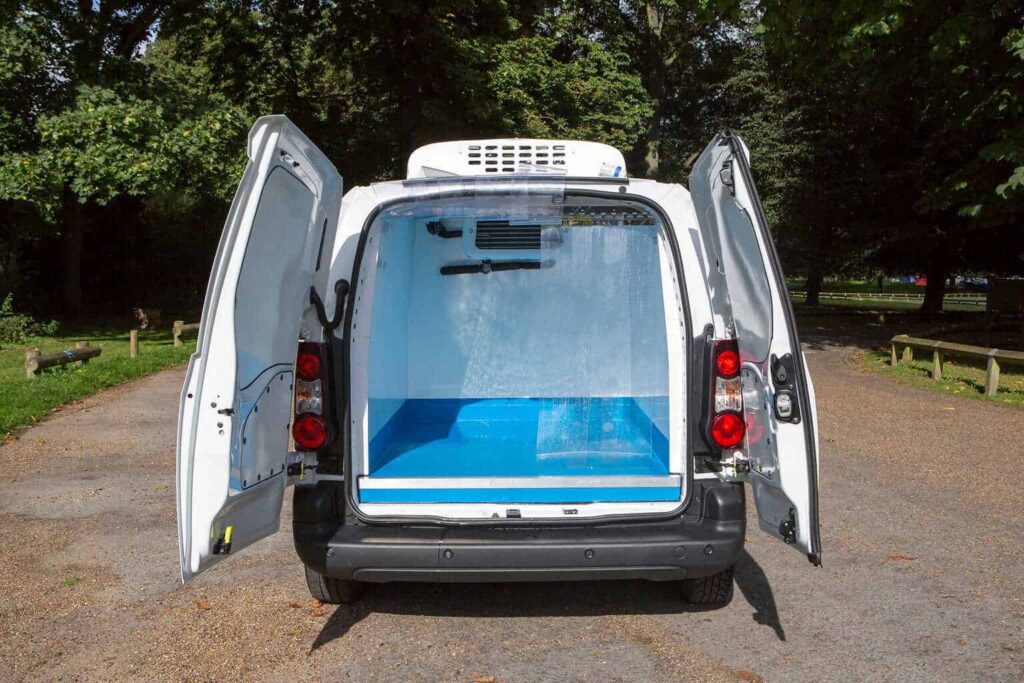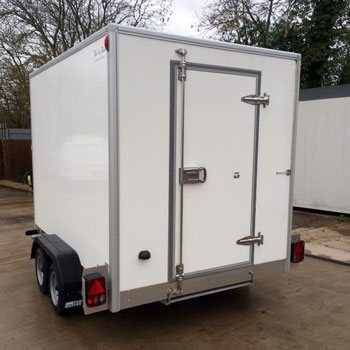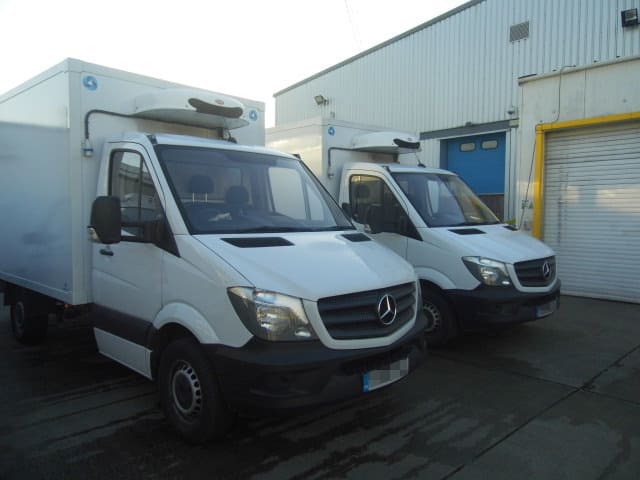If you read that title and initially scoffed, you’re not alone. The idea that delivery vans can save the environment sounds far fetched. But transporters are aware of the huge impact shipping has on our environment. So, they’ve been working for decades to design more fuel-efficient routes and greener fleets. And the recent COP26 declaration is set to accelerate this: “As governments, we will work towards all sales of new cars and vans being [zero-emission] by 2040 or earlier, or by no later than 2035 in leading markets.” Delivery vans are already saving the environment as zero-emission models gain traction and become just as affordable.
1. Types of delivery vans
According to Business Van, the main types of vans are:
- Car-derived van – goods vehicle adapted from a passenger vehicle
- Dropside van – a flatbed with sides that open
- 4×4 vans – van good for rural roads and bad weather conditions
- Luton Van – enclosed body and a separate cab
- Box van – like a Luton van but usually rear access only
- Microvan – from Japan, only DFSK brand in the UK, really small vans
- Chassis van – just the chassis with or without a cab
- Minibus – a 9 to 17 seat people transport
- City van – compact and sized for euro pallets
- Panel van – trade van with a low, medium and high roof or short, medium and long wheelbases
- Platform cab – has a flatbed over the chassis
- Pick-up – a truck with an open back with low sides
- Crew van – ideal as a people transport
- Tipper – a van with a hydraulic ram to tip the load to the ground
- Curtainside van – a dropside van with a tarping system
- Refrigerated van/Temperature controlled van – also called a chiller van, keeps food and goods at a set cool temperature
And most of those run on diesel or petrol. But many new vans are coming out across popular van types in hybrid or fully electric models. And therefore they have nearly no emissions while in use.
2. Why are delivery vans impacting climate change?
With online shopping rapidly becoming the most popular way to buy, private couriers and the Royal Mail deliver millions of parcels all over the country every year. According to the BBC, “Royal Mail already has a fleet of 100 electric vehicles and has announced plans to expand it. “We have the largest ‘feet on the street’ network of 90,000 postmen and women, and we have reduced carbon emissions by 29% since 2005, but we want to find even more environmentally friendly ways to deliver to 30 million homes across the UK,” David Gold adds. In April, an Ultra Low Emission Zone will be introduced in central London to try and reduce air pollution.” This was expanded in Oct 2021. And it means companies will pay a hefty price to drive most vehicles into the city centre. It’s expected that this sort of change will increase the amount of zero-emission vehicles in use, at least in the capital.
3. Why are zero-emission vans better for the environment?
According to Nissan, “To beat air pollution, we have to cut out emissions. With no tailpipe emissions of CO2, or the air pollutants which have a detrimental effect on human health (particulate matter and NOx), [electric vans are the answer].” They don’t have the damaging effects present in petrol or diesel-powered vans. And they will allow for transit within European ultra-low emission zones as well. The US Department of Energy explains, “emissions may be produced by the source of electrical power, such as a power plant. In geographic areas that use relatively low-polluting energy sources for electricity generation, PHEVs and EVs typically have lower emissions well-to-wheel than similar conventional vehicles running on gasoline or diesel. In regions that depend heavily on coal for electricity generation, PEVs may not demonstrate a strong well-to-wheel emissions benefit.” But the UK has 37.3 renewable energy as of Q1 2021 and plans to go fully renewable.
4. What’s the average price of an electric refrigerated van?
The average price of an electric refrigerated van is £1500 + VAT per month to rent. This is based on the larger 3.5t size which is the most commonly used in the UK. But remember that insurance and extras will likely fall on top of this figure. And always look for models with Rapid Charge. This is due to the restricted charge range of any EV. The ability to pull onto a forecourt with charge points and charge the vehicle back to 80% within 45 minutes can prove very effective for a busy operation.
5. Which is better for your business – renting or owning?
That largely depends on your goals. If you need to keep cash flow high, then a large outlay might not make sense. Or if you only need an electric refrigerated van for a few weeks or months, you can save a ton versus buying one outright and shouldering the depreciation. However, if you’ve be using this vehicle for years, then buying an electric refrigerated van is probably the best choice. But consider buying used fridge vans to prevent fresh CO2 from being released into the atmosphere during manufacturing.
6. Features to look for in your electric refrigerated van
A good EV should offer most of the same features as a comparable diesel such as cruise control, over speed alarm & blind-spot monitoring, central locking, driver seat heaters & seat belt alarms etc. Eco mode is a must and you’ll want to keep your van in Eco to get maximum range. Variable regeneration mode will maximise the power being put back into the battery when the foot is taken off the throttle via the kinetic energy regeneration system (KERS). And you’ll want a reliable power take-off point for running ancillary items without significantly reducing the range. It is also important that the vehicle can offer a workable payload. Consider using new European weight derogation laws which allow a non-fossil fuel vehicle to be plated up as far as 4.25t and still be driven on a standard license subject to 5 hours of training.
Summary
Overall electric vans are an innovative solution to the modern problem of emissions and air pollution. For a reasonable price, they offer all the mod-cons of petrol or diesel-powered options, but without the damaging effects. They let you go into ULEZ and with rapid charge, you’ll see only minimal downtime. Isn’t it time you looked at refrigerated electric vans?




